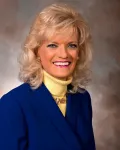Do fish feel pain? UTA team says it's likely.
Drawing on contemporary neuroscience, UTA team wades into debate about fish pain
2021-04-27
(Press-News.org) An international, multidisciplinary team that includes faculty members from The University of Texas at Arlington has published a paper in the journal Philosophical Psychology that wades into the debate about whether fish feel pain.
Their conclusion: while fish lack certain regions of the brain typically associated in humans with processing the unpleasantness of pain, this does not offer definitive proof that fish don't experience painful events.
There is a divide among contemporary scientists and philosophers on the issue of animal suffering, particularly in fish. Following the discovery of pain receptors in fish in the early 21st century, scientists developed behavioral experiments that seemed to show that fish feel pain.
However, some researchers continued to highlight the fact that fish lack certain cortical regions in their brains associated with the emotional unpleasantness of pain, or "pain affect."
In the article, "Against Neo-Cartesianism: Neurofunctional Resilience and Animal Pain," the UTA faculty members and their colleagues draw upon contemporary neuroscience to argue that many humans who have suffered brain injuries that impact pain-processing regions still maintain pain affect and self-awareness. This suggests that such cortical regions aren't necessary for pain, or that the brain can compensate to ensure essential functions such as pain affect remain intact.
"Claiming that fish don't feel pain due to the absence of these regions of the brain could be much like concluding they can't swim because they lack arms and legs," said Phil Halper, lead author of the study and an independent researcher in Great Britain.
Kenneth Williford, UTA associate professor and chair of philosophy and humanities, and Perry Fuchs, UTA professor and chair of psychology, are co-authors of the article, along with David Rudrauf of the University of Geneva in Switzerland.
Answering whether fish feel pain is an important part of the quest to understand the complexity of the pain system. Our understanding of these processes could have major implications across our society and can be used to help guide future government, environmental and food industry policies, as well as personal dietary decisions.
The team examined anatomical damage detailed in multiple studies of individuals with brain injuries to determine whether those individuals could still experience pain. One such study featured a patient known as Roger, who had key regions of the brain often associated with pain-processing, destroyed by disease. Roger's ability to experience pain, however, remained intact and in fact even more sensitive than average.
An examination of other individuals with brain injuries led the team to conclude that no single cortical region seems to be necessary for pain affect. This finding supports what Rudrauf calls "neurofunctional resilience," the idea that the brain can flexibly employ multiple different systems to ensure that pain affect and other key functions continue.
"While our study cannot prove that fish feel pain, we can assert that arguments relying on a lack of certain brain structures to deny pain in fish look increasingly untenable," Williford said.
INFORMATION:
ELSE PRESS RELEASES FROM THIS DATE:
2021-04-27
Rockville, Md. (April 27, 2021)--Deep heat creams widely used by athletes to soothe sore muscles may also boost performance when applied before exercise, according to new research presented virtually this week at the American Physiological Society's (APS) annual meeting at Experimental Biology 2021.
Researchers at Nanyang Technological University in Singapore studied a small group of male volunteers to determine the effects of deep heat cream on exercise endurance. Each volunteer participated in two trials--one where he applied a thin layer of a commercially available ...
2021-04-27
Rockville, Md. (April 27, 2021)--Researchers from Wake Forest School of Medicine in North Carolina have demonstrated that a common diabetes drug inhibits the spread of Clostridioides difficile, or C. diff--a potentially life-threatening infection commonly acquired during hospital stays. The team will present their work virtually at the American Physiological Society's (APS) annual meeting at Experimental Biology 2021.
C. diff is the most common hospital-acquired infection in the U.S. It starts in the intestines, often after a course of antibiotics. The Centers for Disease Control and Prevention categorizes the bacteria C. diff as a public health threat that "require[s] urgent and aggressive action." In 2017, ...
2021-04-27
Rockville, Md. (April 27, 2021)--The popular herbicide Roundup® has been in the news because of concerns its main ingredient, glyphosate, might cause cancer. Now researchers from Florida Atlantic University (FAU) are evaluating the pesticide for potential neurological impacts. This week, the scientists will present their work virtually at the American Physiological Society's (APS) annual meeting at Experimental Biology 2021.
The roundworm Caenorhabditis elegans (C. elegans) is a microscopic worm that lives in soil and feeds on bacteria. Scientists have studied it extensively since the 1960s to better understand fundamental physiological processes of the animal kingdom. Because roughly 38% of its genes have counterparts in humans, findings ...
2021-04-27
Rockville, Md. (April 27, 2021)--High-intensity cycling in very short bursts can lead to performance and health benefits in just 10 minutes a day, according to a new study to be presented virtually this week at the American Physiological Society's (APS) annual meeting at Experimental Biology 2021.
Young adult volunteers participated in high-intensity cycling three times a week for eight weeks. They cycled at maximum effort for four seconds and rested for 15 to 30 seconds before beginning another four-second sprint. Each sprint-rest bout was repeated up to 30 times in a single workout session, for a total of 10 minutes.
By the end of the trial ...
2021-04-27
Rockville, Md. (April 27, 2021)--A new study by researchers at the VA Portland Health Care System in Oregon found that augmenting traditional treatment for traumatic brain injury (TBI) with morning bright light therapy (MBLT) improved physical and mental symptoms for participants. The team will present their work virtually at the American Physiological Society's (APS) annual meeting at Experimental Biology 2021.
According to the U.S. Department of Veterans Affairs (VA), over 185,000 veterans have been diagnosed with at least one TBI. TBI is both a common and complex injury. Because of the circumstances surrounding the brain injury, TBI frequently coincides with posttraumatic stress disorder ...
2021-04-27
Rockville, Md. (April 27, 2021)--Fatty acid supplements may protect children with high cholesterol from heart disease later in life by increasing their blood levels of healthy omega-3 fatty acids, according to a new study. Researchers from the Uniformed Services University of the Health Sciences in Bethesda, Maryland, will present their work virtually this week at the American Physiological Society's (APS) annual meeting at Experimental Biology 2021.
Previous research has shown that high blood levels of beneficial fatty acids, including omega-3 fatty acids, eicosapentaenoic acid (EPA) and docosapentaenoic acid (DPA) found in seafood, are associated with a lower risk of coronary artery disease and a higher likelihood of healthy aging. "Since coronary artery ...
2021-04-27
Rockville, Md. (April 27, 2021)--A new study reveals that renin-angiotensin system (RAS) genes within the amygdala--the brain region important for traumatic memory processing--express differently when the brain develops fearful memories, such as when people undergo traumatic stress. Researchers have found that medication may potentially be used as a pharmacological blockade of the angiotensin type 1 receptor, thereby improving components of fear memory as assessed by freezing behavior. The research team from George Washington University in Washington, D.C., will present their findings virtually at the American Physiological Society's (APS) annual meeting at Experimental Biology 2021.
Post-traumatic stress disorder (PTSD) is a strong predictor ...
2021-04-27
Rockville, Md. (April 27, 2021)--Exposure to extreme heat (95 degrees Fahrenheit and above) and humidity for eight hours raises the core body temperature and causes dehydration, resulting in an increased risk of acute kidney injury, according to a new study. The researchers, from the Indiana University School of Public Health-Bloomington and University at Buffalo Center for Research and Education in Special Environments in New York, will present their findings virtually at the American Physiological Society's (APS) annual meeting at Experimental Biology 2021.
Acute kidney injury, ...
2021-04-27
Rockville, Md. (April 27, 2021)--New research to be presented this week virtually at the American Physiological Society's (APS) annual meeting at Experimental Biology 2021 explores the positive and negative effects of lifespan-extending drugs on mitochondrial function and age-related osteoarthritis (OA).
Decreased function of mitochondria--the energy centers of the cells--is a hallmark characteristic of aging. Maintaining mitochondrial function during the aging process while delaying age-related diseases, such as OA, could be a key to extending lifespan. Previous research has found that metformin, primarily used to treat type 2 diabetes, and rapamycin, a drug used to prevent organ transplant rejection, can extend lifespan and maintain physiological ...
2021-04-27
Rockville, Md. (April 27, 2021)--People who self-report daytime sleepiness were found to have shorter telomeres regardless of whether they had obstructive sleep apnea, according to a new study from researchers at the Mayo Clinic in Rochester, Minnesota. The findings will be presented virtually at the American Physiological Society's (APS) annual meeting at Experimental Biology 2021.
Telomeres protect DNA from biological stressors, and shortened telomeres are associated with multiple cardiovascular diseases, according to the research team. This study found people reporting daytime sleepiness had similar telomere length compared to those without sleepiness; ...
LAST 30 PRESS RELEASES:
[Press-News.org] Do fish feel pain? UTA team says it's likely.
Drawing on contemporary neuroscience, UTA team wades into debate about fish pain





